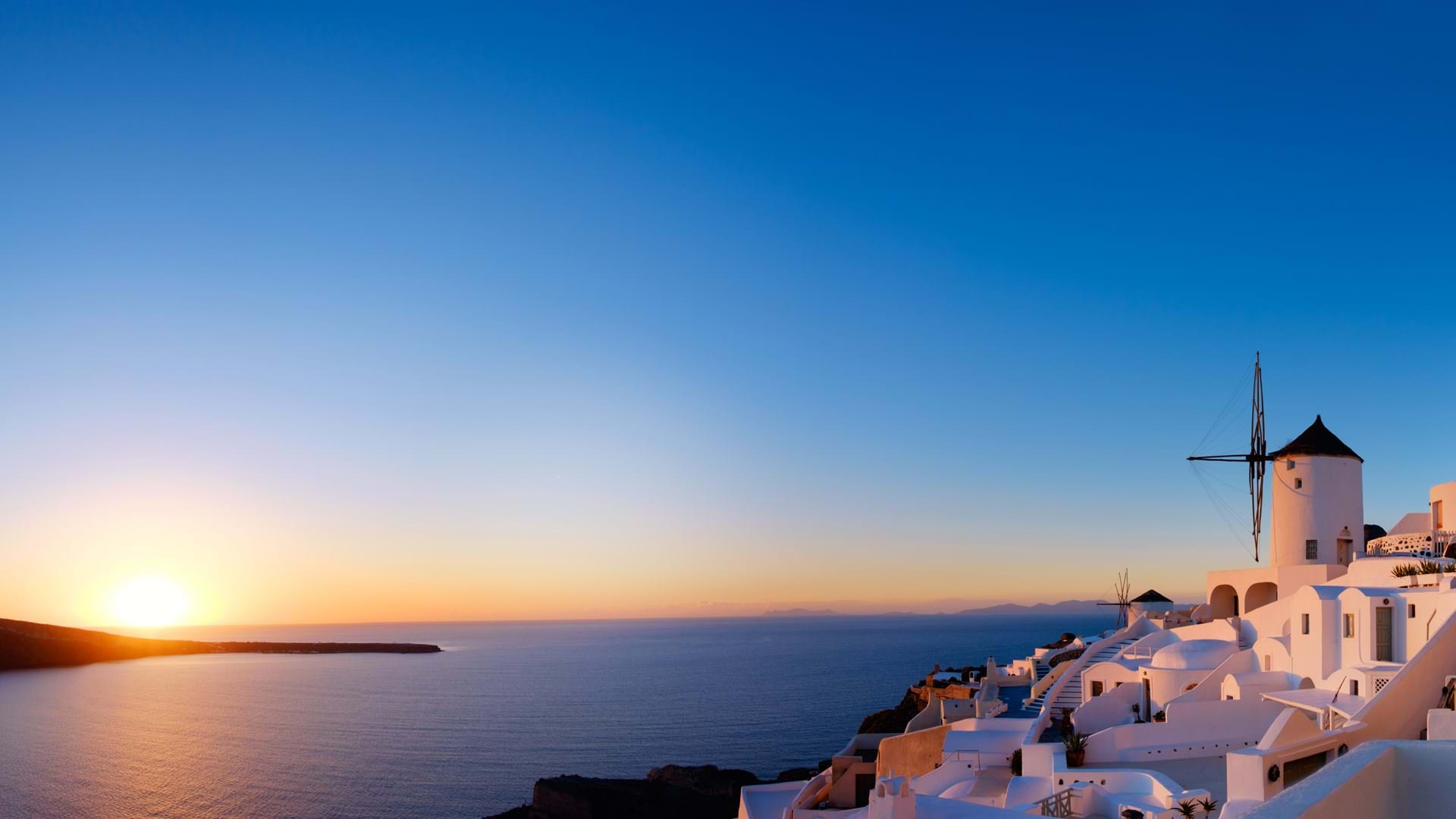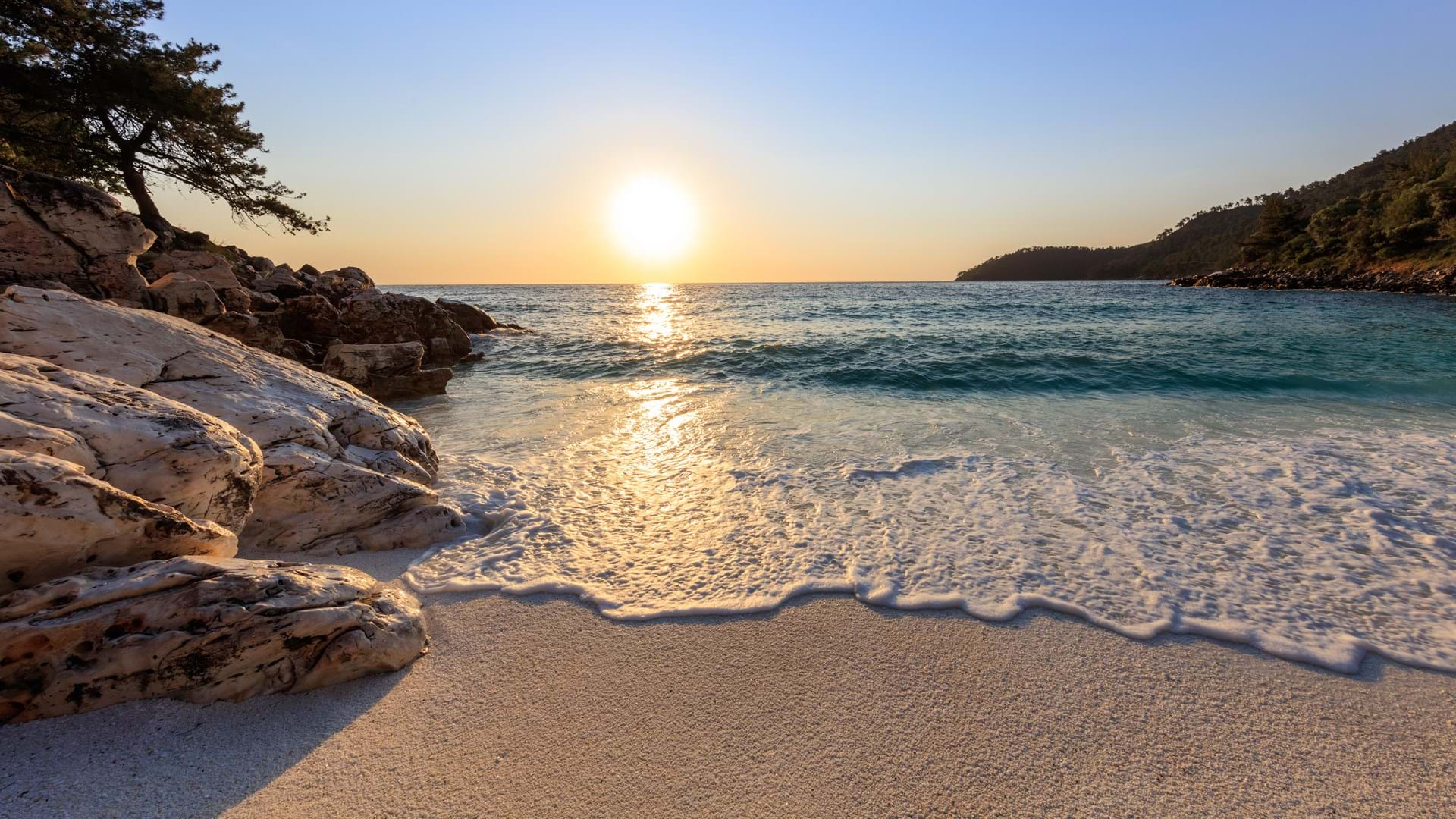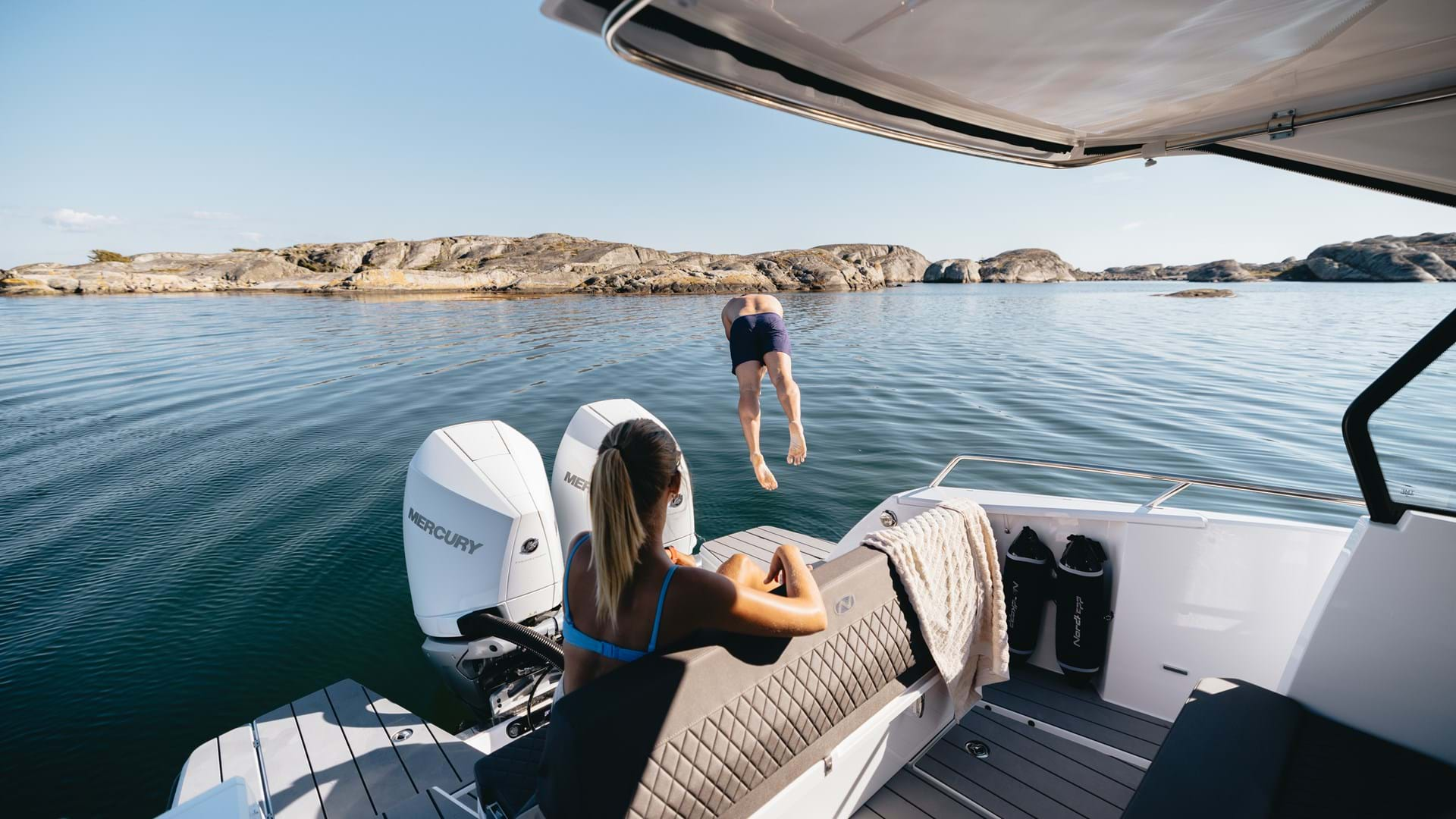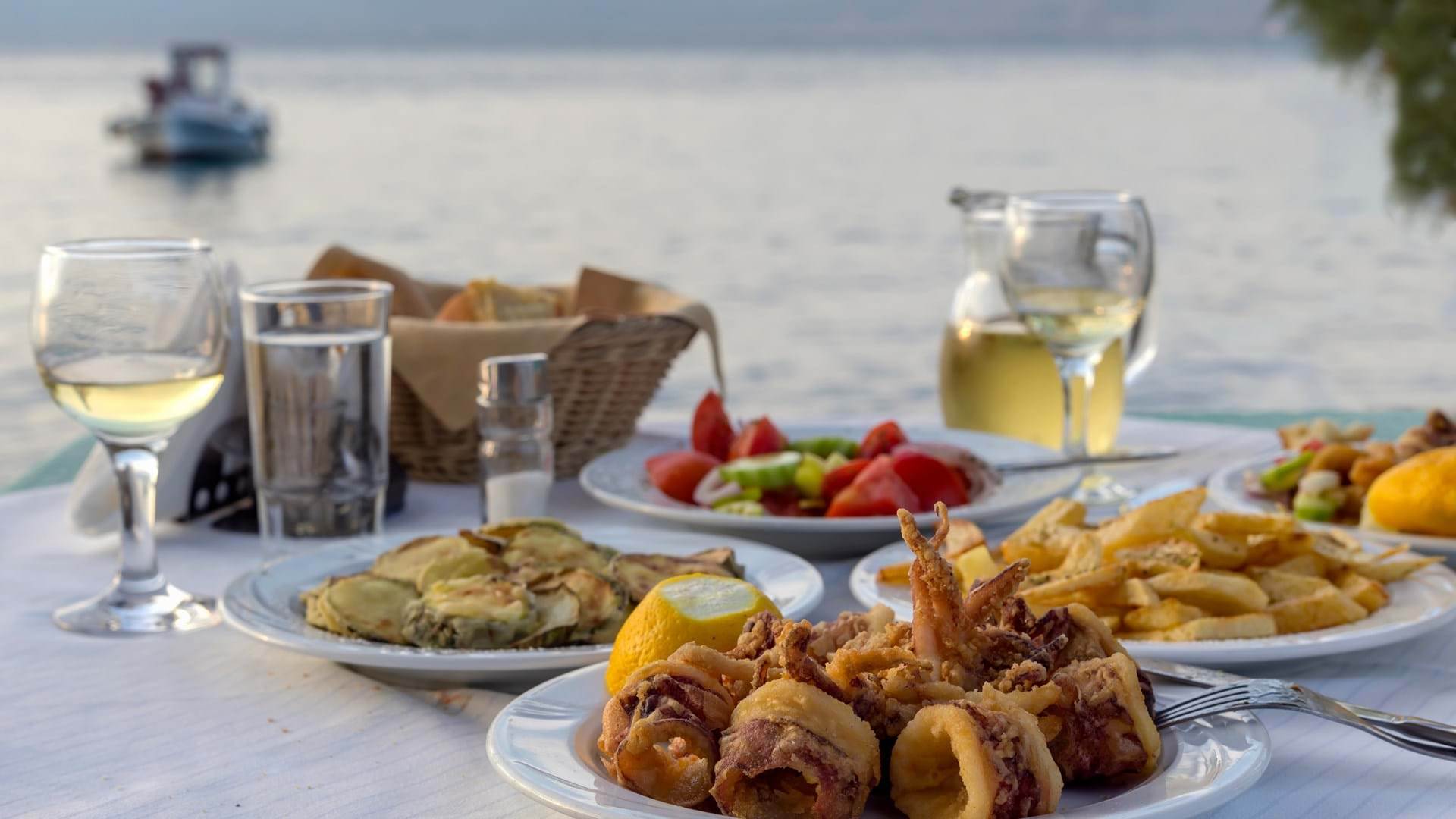
The Greek Way: An Odyssey of Maritime Culture and Cuisine
Picture yourself standing on the Aegean coast, your feet firmly planted in the sand. The salty breeze, teeming with the aroma of thyme and olives, caresses your skin as your eyes scan the horizon. The same turquoise waters ruled by the trireme warships a millennia ago now soothe you with its steady flow. You may not be Theseus on a quest to defeat the Minotaur, but like him, you too are now part of an ageless narrative—of a people whose soul and sustenance are shaped by the sea.
This is Greece, a cradle of civilisation, where philosophy, drama, and democracy were born. Just as the Vikings were sons and daughters of the North Sea, the Greeks are the enduring heirs of the Mediterranean. Yet, it wasn’t the plunder of foreign lands that set their course; it was commerce, culture, and cuisine. A combination of these elements has seasoned the Greek spirit like a well-prepared moussaka.

Sunrise at Saliara beach, Greece
Unlocking the Pleasure of the Aegean and Beyond
The Greeks have been master shipbuilders and navigators for centuries, voyaging into the great unknown long before the dawn of the Common Era. Shaping culture all around the Western world, as the ideas of Plato and Aristotle spread in texts across the seas, touching shores from modern-day Italy to Turkey.
Just as Viking chieftains were buried with their ships, Greek heroes and gods were often associated with the sea—Poseidon with his trident and Odysseus with his cunning maritime survival. However, The Grecian passion for the sea is not confined to history books; it thrives in the laughter echoing off island cliffs, the splash of an anchor finding purchase in a secluded bay, and the clinking of wine glasses aboard a vessel as the sun sinks into the Mediterranean. Boating in modern Greece isn’t merely a pastime; it’s a cultural touchstone. Many modern Greeks learn to navigate at sea almost as soon as they can walk, imbibing the skills and values of their forebears—courage, resourcefulness, and an enduring respect for the sea’s might.
Today’s recreational boaters in Greece are treasure hunters of a sort, yet the treasure they seek is not material. They explore hidden coves and isolated beaches that remain untouched, places accessible only by boat. Many still follow the ancient trade and exploration routes, albeit now in pursuit of pleasure rather than commerce or conquest.
In every sense, recreational boating keeps the spirit of the ancient mariner alive, allowing a new generation to weave their tales of adventure and exploration into the rich tapestry of Greek maritime history.

Enjoying a refreshing dip in the sea.
An Edible Odyssey
The Greek connection with the sea is most tangibly felt in the culinary arts. On the islands and coastal regions, one can’t escape the luscious offerings of the sea—grilled octopus drenched in olive oil, squid ink risotto, and, of course, the omnipresent moussaka, layered with the fruits of the land. Here, food is not just sustenance; it’s a narrative, a link between the earth, sea, and sky, uniting the elements as harmoniously as a well-composed ancient Greek drama.
Olives, the gold of the Greek earth, are often the unsung heroes of this maritime tale. Their oil enriches the fish caught from the blue depths, marrying land and sea on a single plate. The Mediterranean Diet, heavily inspired by Greek cuisine, echoes this harmony- rich in fish, olive oil, and grains- a testament to a lifestyle nurtured by Neptune’s kingdom and Demeter’s realm.

Dining out, close to the sea, is something many of us associate with Greece.
A Big Fat Greek Voyage
Greece is a haven for boating enthusiasts. Imagine cruising along the Aegean coast in a boat like the Enduro 705, taking in the alluring scenery while drinking a crisp, freshly squeezed orange juice from the refrigerator aboard. The canopy’s shade allows for a mild ocean breeze to pass through the cockpit. And for a moment, you’re suspended in a world between history and modernity. Here, the wisdom of the ancients seems to whisper in the wind, blending seamlessly with the rhythmic GPS beeps mapping out your course. It’s a sublime moment where past and present converge, reminding you that boating isn’t just recreation in Greece—it’s a dialogue with history.
